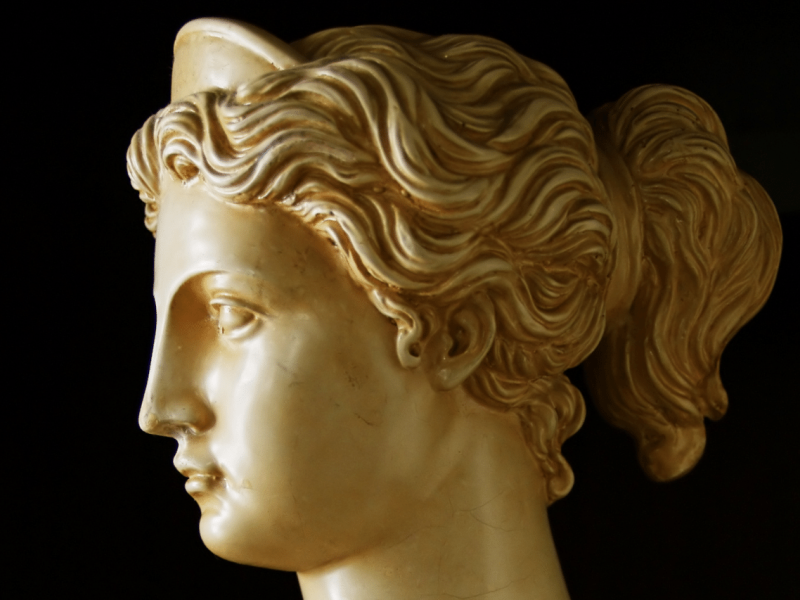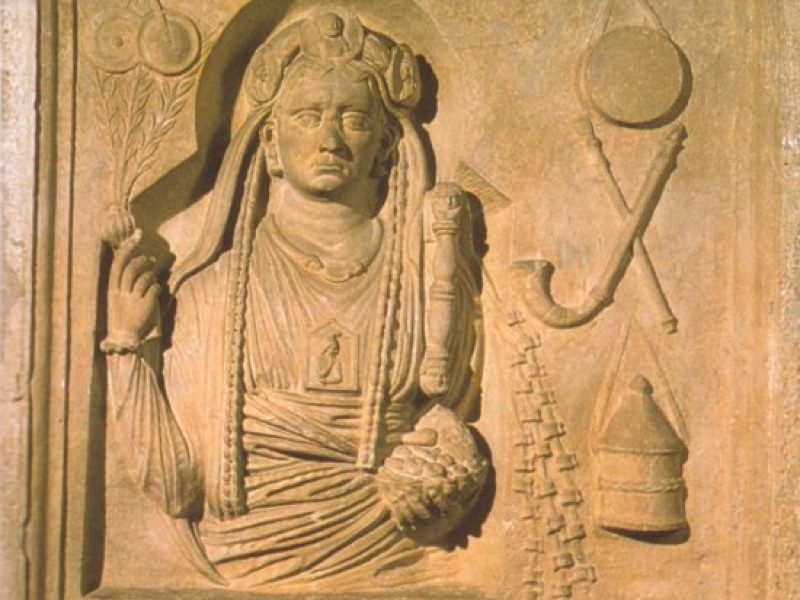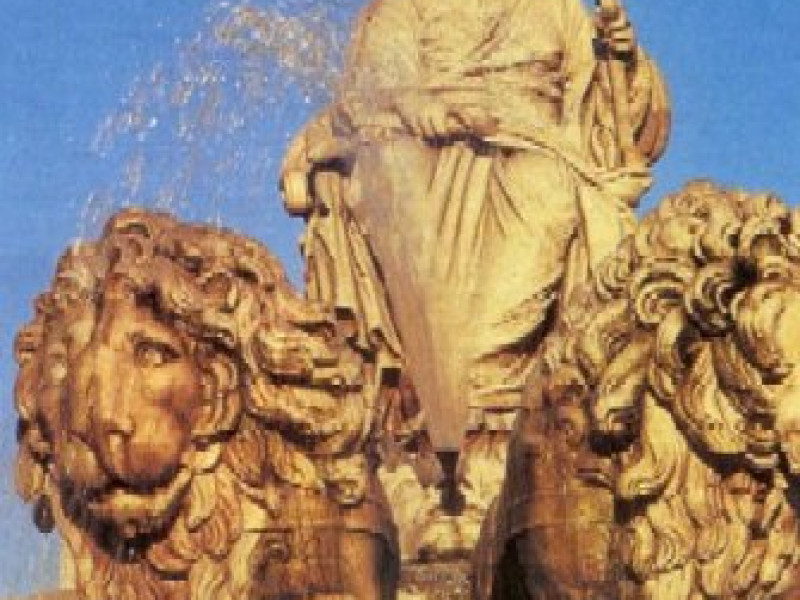Artemis of Ephesus
In Ephesus, Asia Minor, there was a great temple built to the goddess Artemis (Diana). This temple, known as the Artemesium, was one of the Seven Great Wonders of the World. The temple was immense in size and magnificently adorned with artwork and sculptures.
The temple was the largest of its kind, built by Croesus, king of Lydia, around the mid 6th century BC.
The temple was destroyed in 356 BC by a madman named Herostratus, but it was rebuilt by Alexander the Great. The temple was destroyed again, this time by the Goths, in AD 262. It was never rebuilt after the second destruction.
Among the Greeks, Artemis was usually seen as the virgin huntress goddess, but in the East, she was a mother goddess. This attribute was emphasized by the statue, which featured the goddess with many breasts, a clear symbol of motherhood.
The Greek Artemis is a goddess full of contradictions and paradoxes. She was a virgin goddess, yet she was the goddess of childbirth and protectress of the young. There is no such contradiction with the Ephesian Artemis; she was clearly a mother goddess; and there was nothing virgin or chaste about her.
Among the Amazons, she received the highest honour; they worshipped her as the goddess of the Amazonian tribes and the protectress of their young women. Her warlike attributes contradicted her attributes as the mother goddess and goddess of childbirth. The Asiatic Artemis was also the goddess of nature and wild animals, therefore resembling the Mistress of Animals (Potnia theron).
As daughter of the Titaness Leto, Artemis was known by her epithet, Letona. Leto was most likely a mother goddess, through no authorities clearly described her attributes.
More about Artemis can be found in the Olympians page.
Related Information
Name
Artemis, Ἄρτεμις (Greek).
Diana (Roman).
Potnia theron – "Mistress of Animals" (Minoan).
Artemis of Ephesus, Ephesian Artemis, Diana of Ephesus, or Ephesian Diana.
Related Articles
See also Oympians, Artemis or Diana, and the Mistress of Animals (Potnia theron).
Zeus, Leto, Apollo.
By Jimmy Joe








